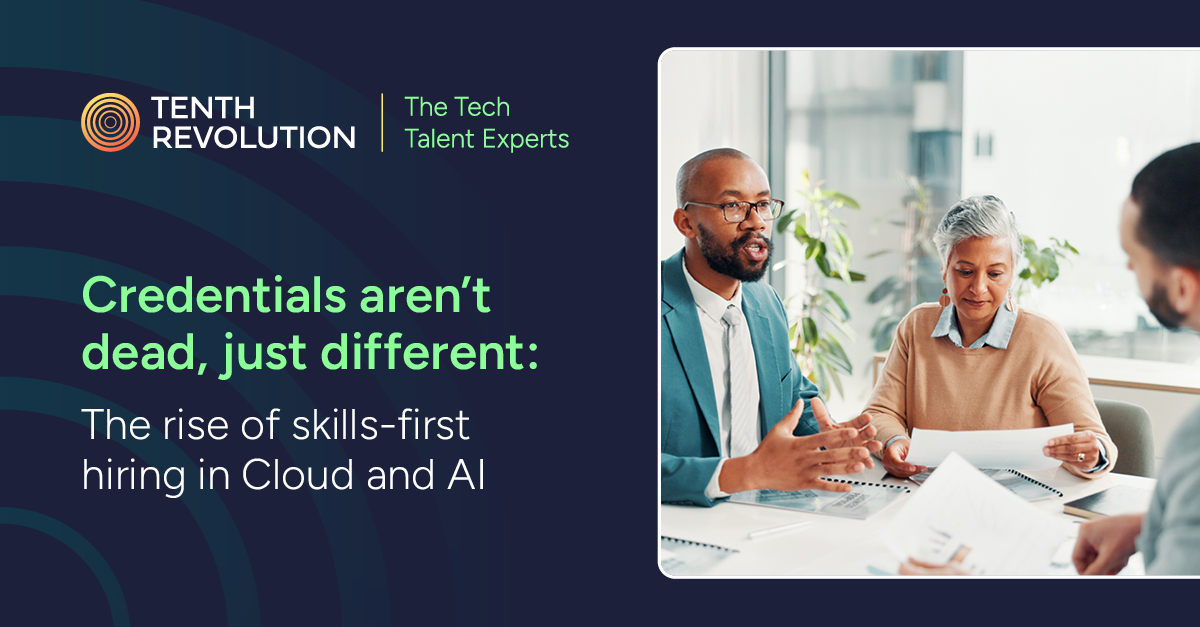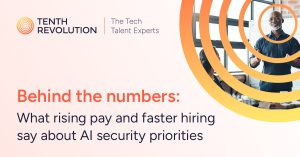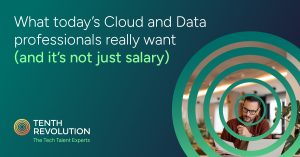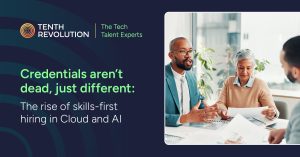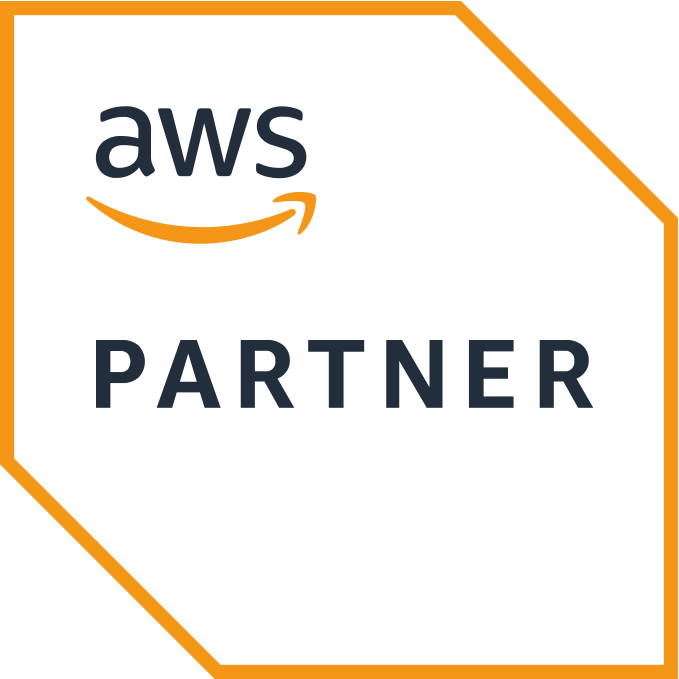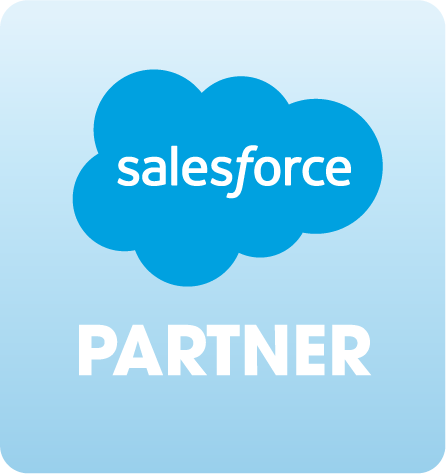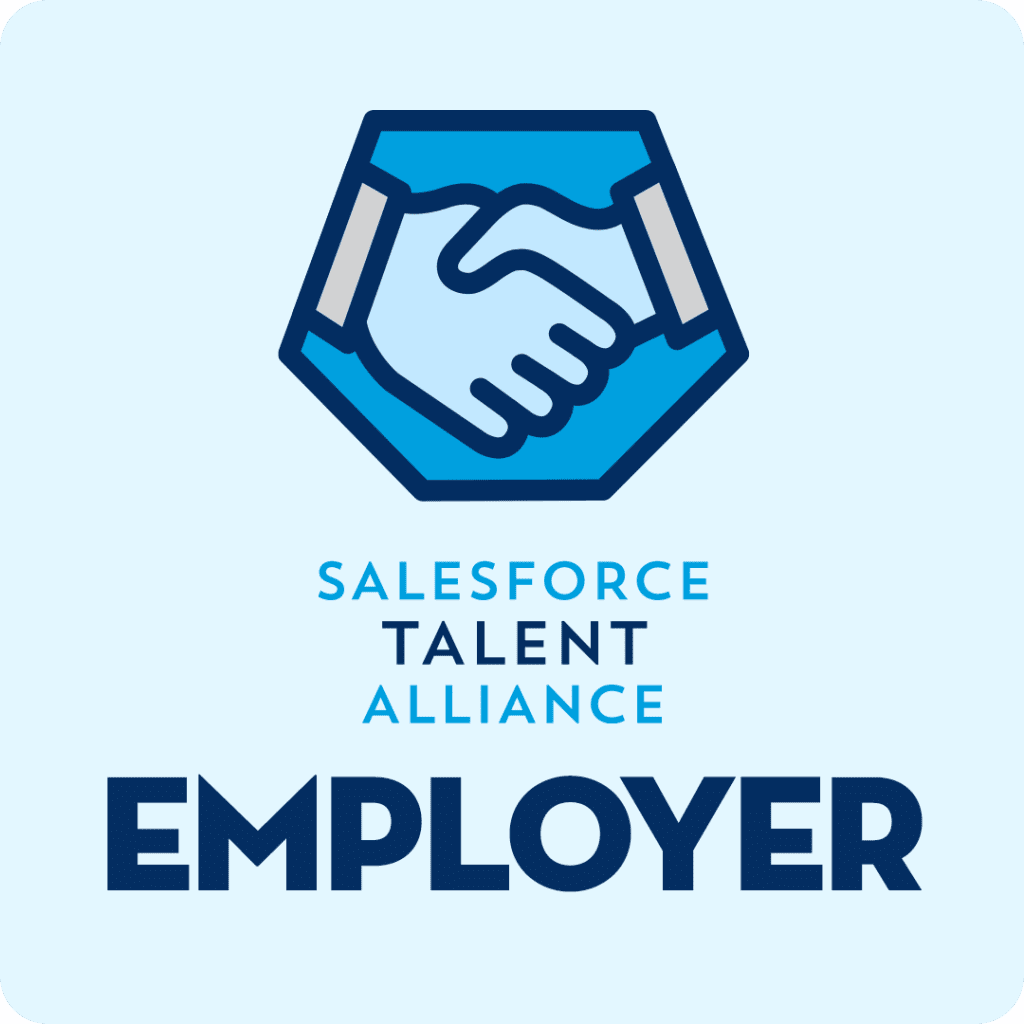For years, the hiring market in Cloud and AI has rewarded experience above all else.
But in today’s rapidly evolving ecosystem, that approach is losing traction. Employers are discovering that certifications and job titles are no longer enough to measure real capability. Instead, skills-first hiring, which focuses on verified competencies and hands-on ability, is redefining how teams assess and attract talent.
This shift is reshaping hiring strategy across the technology landscape. Cloud, Data, and AI roles now demand demonstrable, up-to-date knowledge that can adapt as fast as the technology itself. For leaders, that means building hiring processes that value proof of skill over proof of tenure.
The evolution of verification
In the past, technical certifications were static markers of expertise. A single credential could represent years of relevance. Today, the pace of innovation makes that impossible. Cloud platforms, machine learning frameworks, and AI toolsets evolve too quickly for one-time validation to hold long-term value.
The major certification providers have adapted. AWS, Microsoft, and Google Cloud have all updated their programs to include scenario-based testing and continuous learning. In AI, newer credentials such as the Microsoft Certified: Azure AI Engineer Associate or Google Cloud’s Professional Machine Learning Engineer test applied skills rather than theoretical knowledge.
This evolution reflects a broader shift: the credential is no longer an endpoint but part of an ongoing learning cycle. Employers who understand that distinction are building more accurate ways to measure readiness and performance.
As this model becomes standard, organizations are reassessing how they evaluate potential. Some are partnering with trusted recruitment specialists to identify Cloud and AI professionals whose verified, current skills align with fast-evolving tech stacks and certification frameworks. These partnerships help hiring managers cut through résumé noise and focus on proven capability that translates directly to business results.
Skills-first hiring in practice
A skills-first approach means evaluating what candidates can do right now, not just what they’ve done before. Many hiring teams are introducing practical challenges, project portfolios, or lab-based assessments early in the recruitment process. Others are using data-driven platforms that validate specific Cloud, Data, or AI proficiencies before interviews even begin.
For instance, a candidate who can demonstrate proficiency in infrastructure as code (IaC) or container orchestration across multiple Cloud providers might bring more immediate business value than one with years of tenure in a single environment. Similarly, a Data engineer who can prove hands-on fluency with modern architectures such as Delta Lake or vector databases can help organizations accelerate AI adoption from day one.
This approach does more than filter candidates. It redefines how organizations think about potential. By focusing on capability over credentialism, hiring managers can identify emerging professionals who may not yet have long résumés but can already contribute meaningfully to technical outcomes.
For teams under pressure to modernize infrastructure or scale AI operations quickly, this shift has practical value.
Contracting as a flexible solution
For organizations that need to move quickly, contracting has become an increasingly valuable part of the skills-first strategy. When projects require specialized knowledge or fast turnaround, contract professionals can bridge gaps without long-term headcount commitments.
Contractors bring verified, ready-to-deploy expertise that can help businesses meet immediate goals, whether that means completing a critical migration, optimizing a data pipeline, or accelerating a generative AI implementation. For example, a company deploying a new analytics solution may only need a cloud data engineer for a few months to build and test integrations. Hiring on a contract basis allows the business to access that expertise instantly and stay agile without overextending permanent teams.
In today’s competitive market, this model also helps organizations respond to change faster. Cloud, AI, and data environments evolve rapidly, and being able to scale teams up or down in line with project demands ensures ongoing efficiency. Tenth Revolution Group connects enterprises with Cloud, Data, and AI contractors who can join projects on a contract or permanent basis, providing flexibility when delivery speed and specialist skills are critical.
The business case for skills-first hiring
Skills-first hiring is not just a recruitment trend; it is a strategic approach to risk management. As Cloud and AI investments expand, enterprises are under pressure to deliver measurable value from those technologies. Bringing in the right talent, people who can adapt and apply new methods quickly, directly impacts productivity, security, and innovation.
This approach also supports diversity and inclusion goals. By reducing the emphasis on traditional career paths and academic credentials, organizations can access a broader range of talent. Individuals with non-linear career trajectories, self-taught technologists, or bootcamp graduates often bring valuable perspectives that enhance team performance.
Upskilling plays an equally critical role. Businesses that adopt a skills-first model must also create clear development pathways to retain top performers. Forward-looking employers are already setting aside learning budgets and dedicated study time for Cloud and AI certifications, ensuring their teams stay ahead of constant platform change. Those who combine internal upskilling with external expertise can strengthen delivery and resilience by integrating Cloud, Data, and AI talent into their existing teams.
Challenges to overcome
Despite its advantages, skills-first hiring requires operational discipline. Assessments must be consistent, transparent, and relevant to business needs. Without structure, the model can inadvertently introduce bias or overlook soft skills that influence long-term success.
To make it work, many organizations are combining skills validation with structured behavioral interviews and team-based evaluations. This ensures that candidates not only meet technical standards but also fit within the organization’s culture and collaboration style.
Upskilling is also essential. When businesses commit to skills-first hiring, they must equally invest in continuous learning for existing employees. Certification pathways, internal labs, and dedicated learning time are becoming core components of modern retention strategies, especially in competitive Cloud and AI sectors.
Preparing for the next phase of hiring
As the balance between credentials and capabilities continues to evolve, leadership teams must adapt their hiring frameworks. That means partnering more closely with HR and L&D functions to build clear skills taxonomies, measure proficiency across departments, and map learning to business outcomes.
Ultimately, skills-first hiring is not about removing credentials from the equation. It is about interpreting them differently. The best employers understand that certifications are valuable when they reflect verifiable, current skill sets. They combine these signals with real-world testing to create a more accurate, equitable, and future-ready hiring process.
In Cloud, Data, and AI, where technology changes faster than job descriptions, that mindset is becoming the new standard of competitive advantage.

